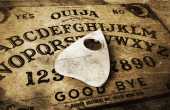tedytak
Contributing writer for The Artifice.
Junior Contributor III
- Plebian Penman
- Lurker
- ?
- Articles
3 - Featured
0 - Comments
6
- Ext. Comments
6 - Processed
2 - Revisions
0
- Topics
2 - Topics Taken
0 - Notes
4
- Topics Proc.
1 - Topics Rev.
1
- Points
312 - Rank
X - Score
137
Latest Articles
Latest Topics
Detective FictionWho are some fictional detectives from literature, television, or cinema who don't get enough attention and adaptations? Why do they deserve more recognition? This obviously excludes Sherlock Holmes and Sam Spade.
|
Japan through the lens of animeAnime is mainstream, there is no question about that. Yet, why is there such a lack of intensity of discussion about Japanese movies that aren't animated, with the exception of Akira Kurosawa's films, especially Seven Samurai and Rashomon? Any thoughts on what is causing this? Feel free to add any information on Japanese cinema and animations' reception internationally as well.
|
Latest Comments
| The Degrassi Franchise on the Teenage Experience | |
A good article. Especially in the US, Disney animation is very much synonymous with Western animated musicals. Another animated musical suggestion is Quest for Camelot. | Five Animated Musicals That Are Not Disney |
I have to agree there, especially the part about spirituality, which I didn’t think about before. Also, not to nitpick, but I think that you’re probably referring to WWI, where he served in the army and fought on the Western Front in France. In WWII, he was a codebreaker. I think Jeff read between the lines and assumed, but just wanted to point it out. | Tolkien's Art and Politics: Is Middle-earth Real? |
That’s what I thought, too. It isn’t glamorizing the ’70s or police work really. | Mindhunter: A gritty insight into criminal psychology |
To be honest, while I’m impressed by some aspects of the show (like the close resemblance of the technology to modern technology) I agree with Mohr that the concept of positive liberty isn’t really a thing in the show. It’s not quite fascism/Stalinism vs nihilism in the real world. | Psycho-Pass: Understanding Structural Violence |
It’s true that there are a lot of sci-fi dystopias, but dystopian literature can be in pretty much any genre. For example, 1984 (the quintessential dystopia) isn’t really science fiction. If you want an example, something like The Bartimaeus Trilogy could be a dystopia, because of the way that magicians have created a class system. | What is the Purpose of Dystopian Literature? |



As a non-Canadian, it’s interesting to see a show like Degrassi, especially given its dark themes.